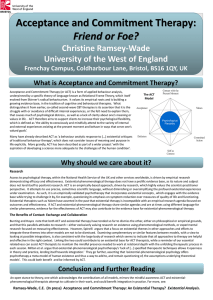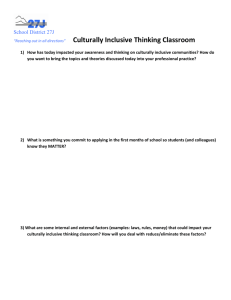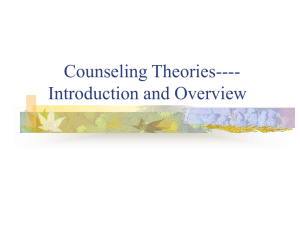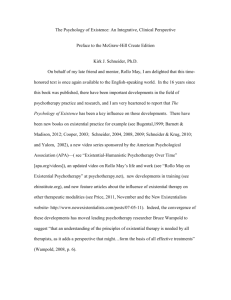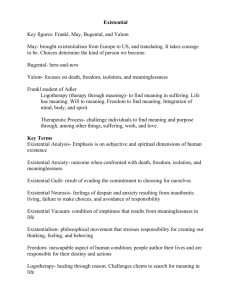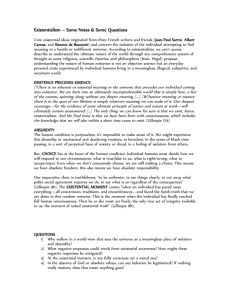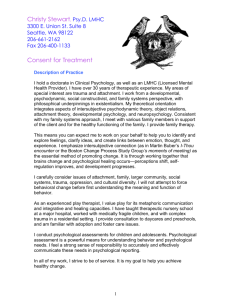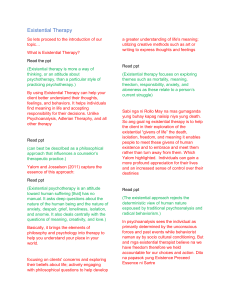ROTTER INCOMPLETE SENTENCES BLANK
advertisement
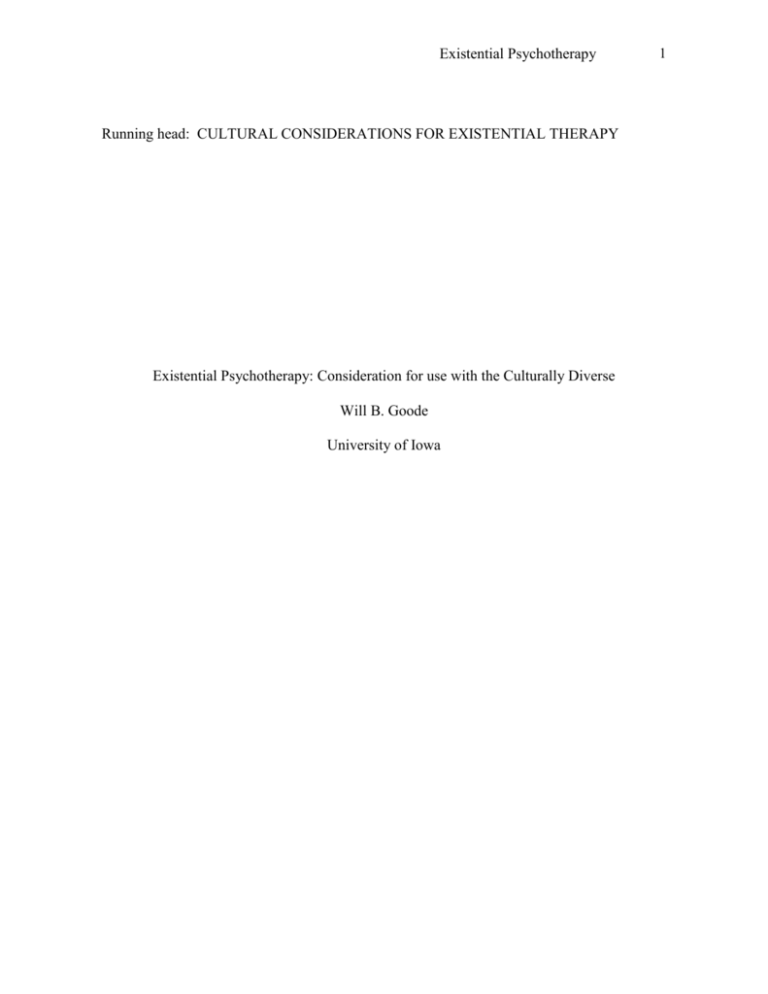
Existential Psychotherapy Running head: CULTURAL CONSIDERATIONS FOR EXISTENTIAL THERAPY Existential Psychotherapy: Consideration for use with the Culturally Diverse Will B. Goode University of Iowa 1 Existential Psychotherapy 2 Existential Psychotherapy: Consideration for use with the Culturally Diverse I am rarely reminded of the cultural antecedents to my most basic behaviors. For example: my choice to eat a sandwich today; my selection of khaki-Gap pants plus an onlinebought t-shirt to wear to the local coffee shop where I currently sit; and my recent decision to engage in pleasant banter with the woman who co-owns this establishment; were all decisions that had been culturally informed to a great extent. Remembering the significance of culture in my actions is rare for me. Moreover, I do not often acknowledge that the behaviors of those around me may be culturally influenced – instead assuming that my values apply universally to all. The truth is likely contrary. That is the choices for food, clothing, and dialogue of the coffee-lady I conversed with were most definitely informed differently than mine – probably because she is Female, Chinese American, less than 5 foot tall, etc. Her unique culture had an effect on the choices she made today in comparison to the choices I made. Being a counselor in training I have noticed that psychological theories follow a similar dynamic to the abovementioned. For decades counseling theories have assumed universal application to all humans – ignoring the important and diversifying influence of culture (Corsini & Wedding, 2005). We have since learned that the universality of theories can no longer be assumed (Sue & Sue, 2003). As the United States becomes increasingly diverse, the psychological community has begun to acknowledge that counseling theories are based on White Euro-centric worldviews, and therefore may have limited applicability for individuals outside of this dominant group (Katz, 1985; Ridley & Lingle, 1996). From the beginnings of psychological counseling, individuals like analyst Carl Jung noted the lack of appreciation counselors were giving to the uniqueness of each client’s inner world and ‘language’ of thought and behavior. Jung argued that a counselor needed to invent
